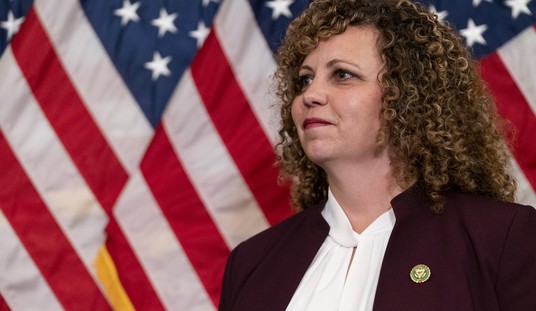The civil war in Libya was barely underway before some American politicians were insisting the United States crash the party. We have been fighting in Afghanistan for nine years and Iraq for eight, but the typical Washington hawk views wars the way Hugh Hefner views buxom blondes: You can never have too many.
The current craze is for a no-fly zone to help remove Moammar Gadhafi. It's been endorsed by Republicans John McCain, Newt Gingrich and Tim Pawlenty, as well as Independent Joe Lieberman and Democrat John Kerry. Defense Secretary Robert Gates has thrown cold water on the idea, but the president has not ruled out military intervention.
Why would that be a mistake? Plenty of reasons:
Safe, limited measures may not be either. The war party assumes that keeping Libya's air force on the ground -- or destroying it should it take flight -- will be quick, simple and painless. But Joint Chiefs of Staff Chairman Adm. Mike Mullen says a no-fly zone would be "an extraordinarily complex operation to set up." It would add costs to a federal budget that is already excessive.
Such operations can lead to American casualties, if our planes are shot down. Errant bombs can kill innocent bystanders, as happens often in Afghanistan. At that point, things suddenly get a lot messier.
Getting in is the easy part. Even perfectly executed operations may fail to turn the tide. Suppose we establish our no-fly zone and Gadhafi's forces proceed to rout the rebels. Do we slink away? Or do we up the ante? Once we start the fight, we may not be able to control when and how it ends. If things go wrong, we will be left with only bad choices.
We would be adding burdens to a military that is already overstretched. If the ongoing wars elsewhere have put unprecedented strain on our volunteer forces, do we really want to demand even more of them?
Recommended
"The American military," reports The New York Times with dry understatement, "is privately skeptical of humanitarian gestures that put the lives of troops at risk for the cause of the moment, while being of only tenuous national interest." No kidding.
We don't know what we're doing. Most of the people endorsing an attack know less about Libya than they do about playing the oboe. Yet this group is willing to shoot first and ask questions later, forgetting that ignorance usually trumps good intentions.
The United States had plenty of direct experience dealing with Iraq before the 2003 invasion. The Bush administration had more than a year to analyze and prepare for what awaited. But once we had toppled Saddam Hussein, we were hit with one nasty surprise after another.
In Libya, the unknown unknowns are legion. We could be helping to bring to power a government even worse than Gadhafi's or creating a new haven for Islamic terrorists. One option is shipping weapons to the rebels -- kind of like what we did in Afghanistan following the 1979 Soviet invasion.
Those weapons, as fate would have it, helped bring the Taliban to power.
We will inflame greater suspicion in the Arab world. Conservatives like to credit George W. Bush's Iraq crusade for spawning democratic movements in Arab nations. But most Arabs don't share that flattering opinion.
Following the Iraq war, Zogby International polls found that by 2006, only 12 percent of Arabs in six countries had a favorable attitude toward the U.S. Two out of three said democracy was not a genuine American goal in the Middle East.
We may harm the cause of those we want to help. One reason these new democratic movements have generated such broad enthusiasm is that they are homegrown -- not fostered by Washington at the point of a gun.
"Right now, it's not about us, and I don't want it to be about us," says Christopher Preble, director of foreign policy studies at the libertarian Cato Institute. Once the U.S. attacks, many Arabs will see it as a fight between an Arab leader and the American imperialists bent on subjugating Muslims, not a heroic struggle by the Libyan people against a dictator.
The United States has had an eventful decade in the realm of military and foreign policy. During that time, we have discovered, at a dear cost, the limits to America's power to transform the world. But we can always learn that lesson again.
























Join the conversation as a VIP Member